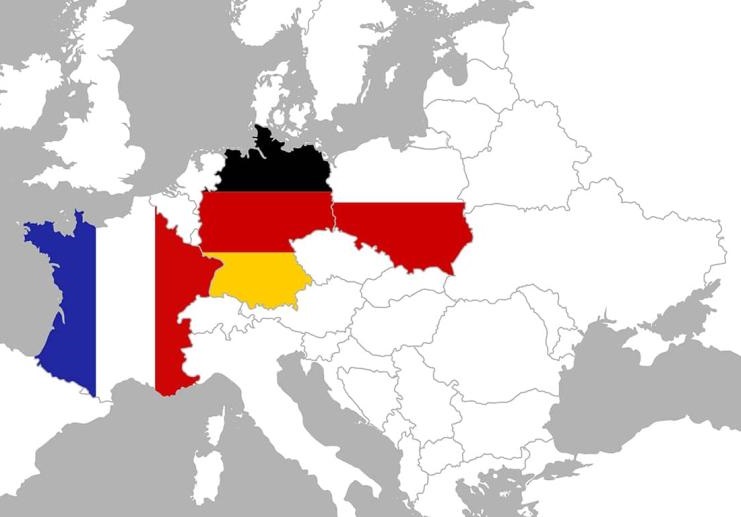Germany, France, and Poland have committed to purchasing weaponry for Ukraine utilizing funds from frozen Russian assets.
The leaders of Germany, France, and Poland convened in Berlin to explore avenues for enhancing support for Ukraine in its defense against Russian aggression. Following the summit, they unveiled plans to increase military assistance to Kyiv, which includes utilizing frozen Russian assets to finance the procurement of weaponry.
German Chancellor Olaf Scholz, French President Emmanuel Macron, and Polish Prime Minister Donald Tusk gathered under the framework of the Weimar Triangle, a regional forum that historically brings together these three countries but has been relatively inactive in recent times. Scholz, speaking after the meeting, celebrated their revitalized partnership as a "symbol of unity" among three nations that have consistently expressed their commitment "to ensuring that Ukraine can effectively defend itself against Russian aggression." He underscored, however, that "we [themselves] are not at war with Russia."
Scholz announced that the trio had agreed upon various measures to bolster support for Kyiv, including "using proceeds from Russian assets frozen in Europe to financially assist in the acquisition of weapons for Ukraine." Last month, Tusk advocated for the West to utilize $300 billion of frozen Russian assets to bolster Ukraine's support.
Additionally, Scholz revealed that the three nations would assist Ukraine in enhancing its ammunition production and establish a coalition to provide long-range missiles to Ukraine. Macron emphasized their commitment to preventing Russia from prevailing in the conflict with Ukraine, stating, "We will continue our support for Ukraine and the Ukrainian people for as long as it is necessary."
Tusk expressed satisfaction with the unified stance of the three countries, dispelling rumors of discord among European capitals on critical matters. He announced that the next summit of the three leaders would occur in Poland in early summer. Tusk also highlighted his recent meeting with President Joe Biden at the White House, expressing contentment that Poland, Germany, and France share a "full convergence of views" on the significance of transatlantic relations.

